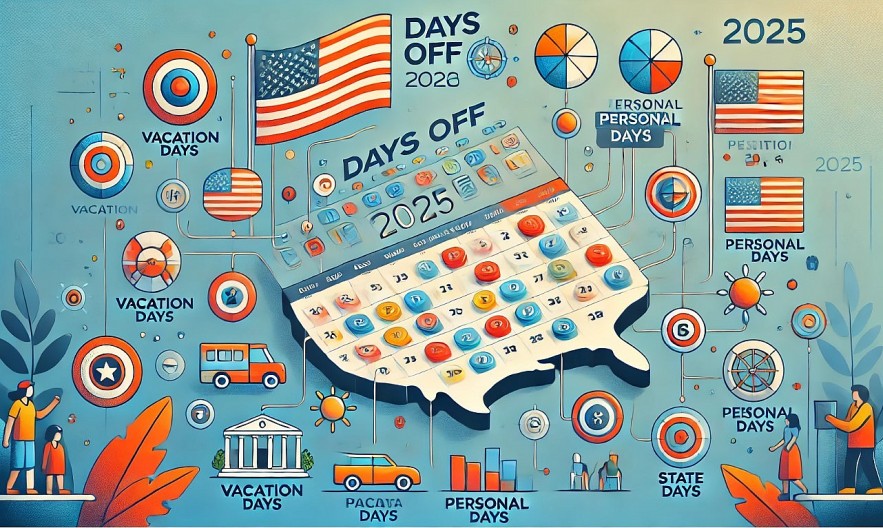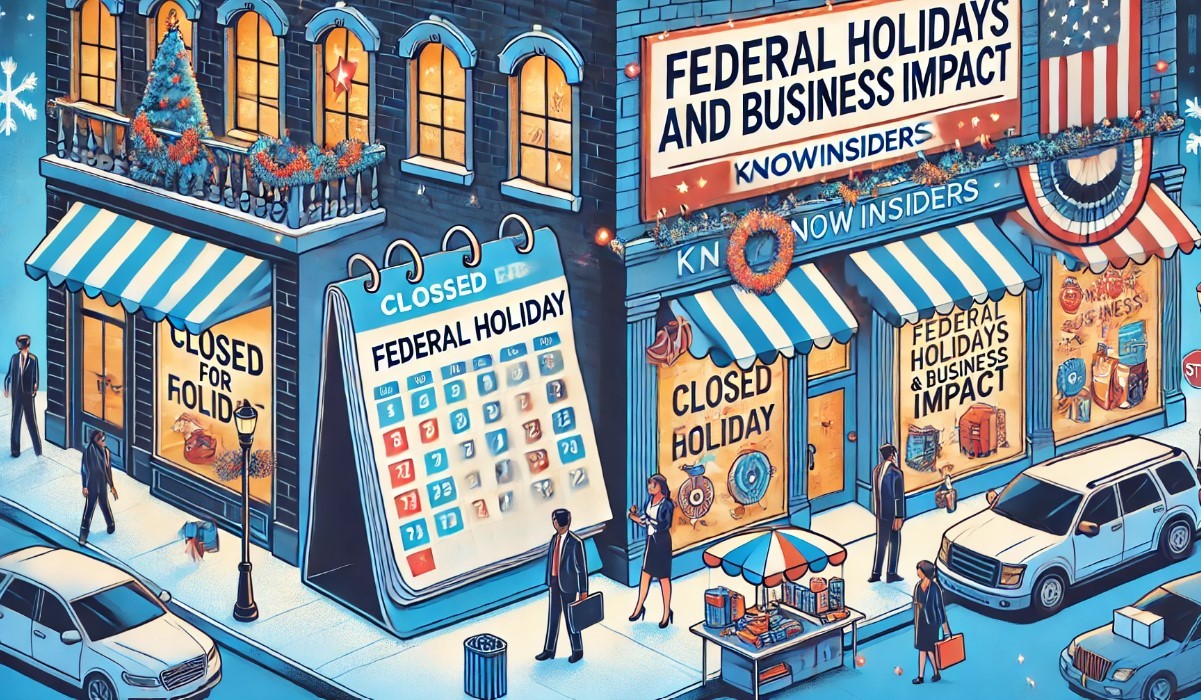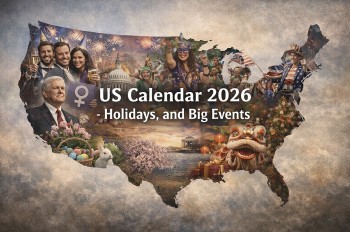How Many Days Off Are There in the U.S. of 2025?
The number of days off in a year is an important consideration for employees, students, and families planning their work-life balance, vacations, and personal schedules. In the United States, the structure of official days off is shaped by federal holidays, state-specific observances, company policies, school breaks, and personal time-off allowances.
For 2025, understanding how these factors align can provide clarity on how many days Americans can expect to have off.
 |
| Days Off in the U.S. 2025 |
Federal Holidays in 2025
The United States observes 11 federal holidays annually, which serve as the backbone of official days off. These holidays apply to federal government employees, while private employers often choose to follow suit. The federal holidays for 2025 include:
- New Year’s Day – Wednesday, January 1
- Martin Luther King Jr. Day – Monday, January 20
- Presidents’ Day – Monday, February 17
- Memorial Day – Monday, May 26
- Juneteenth National Independence Day – Thursday, June 19
- Independence Day – Friday, July 4
- Labor Day – Monday, September 1
- Columbus Day (or Indigenous Peoples’ Day) – Monday, October 13
- Veterans Day – Tuesday, November 11
- Thanksgiving Day – Thursday, November 27
- Christmas Day – Thursday, December 25
These 11 days are guaranteed days off for federal employees, but their observance in the private sector depends on individual company policies. For many workers, these holidays form the core of their annual days off.
Analysis of 2025 Federal Holiday Alignment
In 2025, the placement of federal holidays creates several long weekends, enhancing the potential for extended rest periods:
- New Year’s Day (Wednesday): While it doesn’t fall near a weekend, many companies grant additional days off around New Year’s Eve, creating an extended break.
- Independence Day (Friday): A Friday holiday allows for a natural three-day weekend.
- Thanksgiving Day (Thursday): This holiday traditionally leads to a four-day weekend for many, as the following Friday is often treated as a day off.
- Christmas Day (Thursday): Many employers provide an extended break from Christmas to New Year’s, depending on company policies.
 Full List of US Holidays: Federal, Traditional and Informal Days Full List of US Holidays: Federal, Traditional and Informal Days |
State-Specific Holidays in 2025
In addition to federal holidays, several states recognize their own holidays. These vary across the U.S. and often reflect regional or cultural significance. Examples include:
- Cesar Chavez Day – Celebrated on March 31 in California, Texas, and Arizona.
- Patriots’ Day – Observed in Massachusetts and Maine on the third Monday in April (April 21, 2025).
- Mardi Gras – Celebrated in Louisiana on Tuesday, February 25, 2025.
State-specific holidays generally apply to state employees, though some private employers in these states may also observe them. Residents in these states could enjoy additional days off, adding to the federal holiday count.
Paid Time Off (PTO) and Company Policies
Private employers in the U.S. are not mandated to provide paid holidays, but many offer them as part of employee benefits packages. In addition to paid holidays, companies typically grant Paid Time Off (PTO), which includes vacation days, personal days, and sick leave.
Average PTO Allowances
- New employees: 10-14 days annually.
- Mid-career employees: 15-20 days annually.
- Senior employees: 20-30 days annually, depending on tenure and company size.
If an employee has 15 PTO days in 2025 and their company observes all 11 federal holidays, they could enjoy 26 days off during the year. This total increases if the company offers additional days for occasions like the day after Thanksgiving or the week between Christmas and New Year.
School Holidays and Breaks
Students in the U.S. enjoy significantly more days off than the average worker, thanks to school breaks and holidays. School calendars in 2025 typically include:
- Winter Break: Lasting from late December to early January, this break includes New Year’s Day.
- Spring Break: Usually one week in March or April, depending on the district.
- Summer Vacation: Spanning from late May or early June through August or early September.
- Thanksgiving Break: A short break around Thanksgiving in November.
- Federal Holidays: Observed as non-school days.
Depending on the district, the total number of non-school days (excluding weekends) can exceed 60 days annually, providing ample time for family vacations and other activities.
 2024/2025 US School Holidays: Full List of Dates, Federal and State Calendar 2024/2025 US School Holidays: Full List of Dates, Federal and State Calendar |
Cultural and Religious Observances
In addition to federally recognized holidays, many Americans observe cultural or religious holidays, such as:
- Eid al-Fitr and Eid al-Adha for Muslim communities.
- Rosh Hashanah and Yom Kippur for Jewish communities.
- Diwali for Hindu communities.
These observances are not official federal holidays, but many employers and schools provide accommodations through floating holidays or excused absences. Employees often use personal or vacation days to honor these traditions.
Flexible Scheduling and Remote Work
The rise of remote work and flexible scheduling has transformed how Americans experience days off. Employees with flexible work arrangements can often create their own long weekends or adjust schedules around holidays, providing greater autonomy over time off.
Unlimited PTO Policies
Some progressive companies offer unlimited PTO policies, where employees can take time off as needed, provided their work obligations are met. This trend is growing among startups and tech firms, further blurring the lines between official holidays and personal days off.
Maximizing Days Off in 2025
To optimize days off in 2025, workers and families can strategically plan vacations around long weekends and align PTO with holiday breaks. For example:
- Taking Thursday and Friday off around Memorial Day could create a five-day break.
- Using PTO on July 3 (Thursday) before Independence Day on July 4 (Friday) could extend the weekend.
Such strategies allow employees to enjoy extended periods of rest without depleting their PTO reserves.
Conclusion
In 2025, the number of days off will vary greatly based on a person's situation, including their job type, location, and personal preferences. Americans have many opportunities to take time off, including school breaks, PTO allowances, state-specific holidays, 11 federal holidays, and cultural observances. People can achieve a healthy balance between work and leisure in 2025 by strategically planning their vacation days.
 Public vs. Private Holidays in the United States: The Differences? Public vs. Private Holidays in the United States: The Differences? US holidays are either public (federal) or private. Public holidays are celebrated nationwide and often result in widespread closures, but private holidays are celebrated by ... |
 Top 20 Major Religious Holidays Worldwide 2025: Origins, Significances, and Celebrations Top 20 Major Religious Holidays Worldwide 2025: Origins, Significances, and Celebrations We explore the top 20 religious holidays celebrated globally, detailing their origins, significance, and the various activities associated with them. |
 2025 US Calendar with Holidays for Nonprofits and Charitable Organizations 2025 US Calendar with Holidays for Nonprofits and Charitable Organizations KnowInsiders provides an overview of the significant holidays and events that will occur in 2025 for nonprofit organizations and provides advice on how to make ... |


























